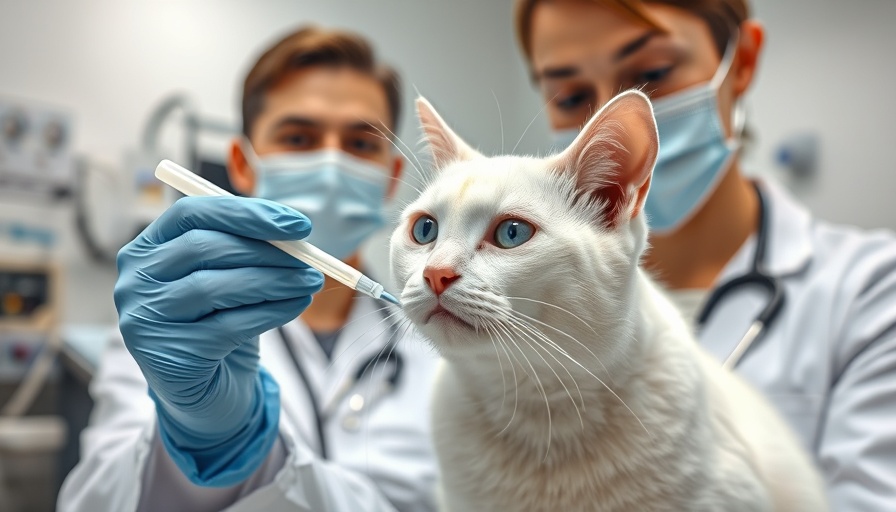
Early Detection: Revolutionizing Feline Health
Veterinarians at Washington State University (WSU) have pioneered a groundbreaking genetic test that heralds a new era in feline health management: the Feline Apoptosis Inhibitor Macrophages (FAIM) test. This innovative tool allows cat owners to assess their pets' predisposition to chronic kidney disease (CKD) before clinical symptoms manifest, offering a proactive approach to a condition that affects a staggering 30-50% of cats aged 11 and older.
The Importance of Early Screening
CKD is a gradual and often silent affliction that leads to kidney failure, resulting in serious health complications. By utilizing a simple cheek swab, pet owners can send in samples for genetic analysis, uncovering risks that would otherwise remain hidden until too late. Dr. Nicholas F. Villarino explains, "Catching the disease early means cat owners can cut out certain foods and medications to maintain their pet’s health and slow the disease’s progression." This proactive strategy can translate to significant financial and emotional savings for pet owners, as they may avoid expensive treatments upon the onset of severe symptoms.
Genetic Innovations at Work
The FAIM test's development stems from a significant genetic variation discovered in 2016 which affects kidney repair mechanisms in cats. This kind of genetic screening exemplifies how advances in biotechnology can lead to tangible benefits in veterinary medicine. As Dr. Villarino states, "To get to a point where we can actually take the science and potentially help pets live a longer life, it’s a really great feeling.” This understanding opens doors not only to early detection but also to future research opportunities that could lead to new treatments for CKD.
Accessibility and Future Implications
The FAIM test is currently available for $100, making it an accessible option for cat owners who want to prioritize their pet's health. Pet owners can swab their cat’s cheek, send it to WSU, and await results that could significantly influence their preventive care strategies. This testing is expected to be available online shortly through WSU’s Program of Individualized Medicine (PrIMe), expanding its reach even further.
Veterinary clinics can leverage such innovations to attract tech-savvy clients seeking contemporary health solutions for their pets, potentially enhancing profitability. By promoting genetic screening, clinics position themselves at the forefront of veterinary care, tapping into a growing trend of preventive health measures that pet owners increasingly value.
 Add Row
Add Row  Add
Add 




Write A Comment